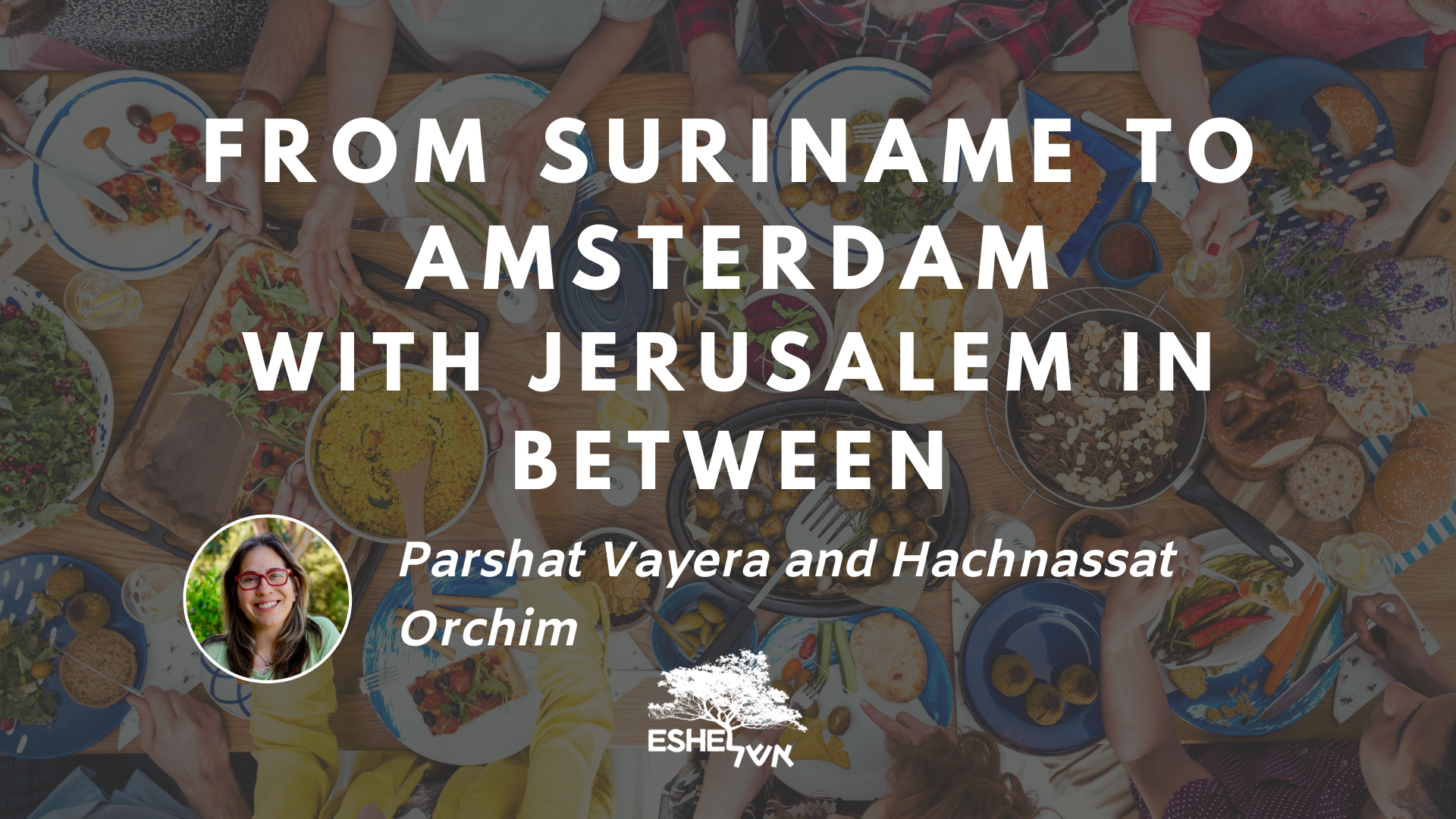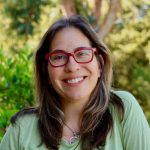
Several years ago, at around this time in the Torah cycle, I was rather pregnant and my life was about to change in ways I could not imagine. My spouse and I knew that if we didn’t travel somewhere soon, we wouldn’t be taking a trip for a long, long while. We used our frequent flyer miles to book our babymoon to Sicily, with an overnight in Amsterdam for Shabbat on our way there.
Before we departed, we reached out to the general address of the Jewish community to ask if anyone could host us, but got no answer. We arrived in Amsterdam just before Shabbat, with no real plans. We figured we could go to shul and hope for the best. At the very least, we would get to see the famous Spanish-Portuguese wooden synagogue.
During Kabbalat Shabbat, we sat quietly in the women’s balcony, marveling at the architecture and taking in the beautiful music of the Sephardi davening. Afterwards, the only other woman sitting with us in the ezrat nashim turned to welcome us to the community, and invited us to join her family for Shabbat dinner. Score! At the same time, we felt vulnerable: we were two women together. We were in a foreign city where we didn’t know anyone. One of us was pregnant. We’d met this woman in an Orthodox shul. Did she know we were together? Would she care? But my ankles were swollen and it was hard to walk; in the chilly November Amsterdam evening, we just wanted a cozy place to land with a hot meal and friendly people.
Once in the warmth of their home, we knew questions would arise: who are you to each other? Where is your husband? As the meal progressed, the host asked us all to go around and say our names and where we were from. When I said my name, the host’s eyes got big. “Are you related to Shlomo Kabakov?” “Yes,” I answered. “He’s my brother.” Stanley, my host, looked at me, his eyes filling with tears: “Your brother saved my life!”
It turned out my brother played a pivotal role in Stanley’s own journey into Jewish life. Stanley had grown up in Suriname. His grandparents lived there as hidden Jews, and on his grandmother’s deathbed, she told him that he was Jewish. Stanley moved to Israel to discover more about his history and his identity. But as a Jew of Color in Israel, he experienced discrimination – it was hard for him to find work and housing. Someone finally gave him a space to sleep, but it was in the bomb shelter of an apartment building. It just so happened that this “safe room” was in the basement of my brother’s building. My brother noticed Stanley, befriended him, and began to host him for Shabbat dinner every Friday night. Shlomo helped him find a place to live, and eventually Stanley found meaningful work. He also met a woman named Leah, another Orthodox Jew of Color living in Jerusalem. They had five sons and later moved to Amsterdam to be the gabbai of the synagogue. Stanley’s own journey into Jewish life was facilitated by my brother’s diehard commitment to hachnassat orchim. When Stanley and Leah got married, they committed to make their new home a place where strangers were always welcome, and to emulate the hospitality that my brother showed Stanley.
Years later, on a cold drizzly night in Amsterdam, there I was sitting at Stanley and Leah’s warm Shabbat table: very pregnant, with swollen feet, hungry and unsure if we would be welcome in a foreign city on Shabbat. We were here because Stanley and Leah had experienced life-changing hachnassat orchim from my brother, and chose to pay it forward. Stanley was open and welcoming to us, as Orthodox Jews who didn’t fit the mold, because he himself was once on the margins.
I am reminded of this story this week, as it encapsulates the power of Eshel Across America. Those of us who have been made to feel like outsiders, especially those of us in the LGBTQ+ community, understand the profound power of being welcomed in. And our hospitality towards others – inviting them into our homes, breaking bread with them, sharing of ourselves – has the power to transform their lives, and their perspective on those who are different.
This week, I hope you’ll participate in Eshel Across America by inviting others into your home, and sharing the Torah of hachnassat orchim at your Shabbat table. Get our discussion guide or print this story, and see how transformative the act of welcoming can be.

